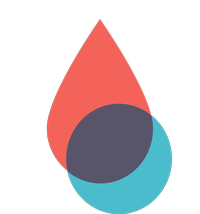Biological Samples from Cancer Patients: Fresh, Frozen, FFPE
Cancer tumors, also called neoplasms, are crucial for cancer research. They help develop and test cancer treatments and find biomarkers through genetic studies. However, tumors vary widely in characteristics like type, origin, and stage.
Choosing the right samples for research is complex, considering factors such as cancer type (carcinoma, sarcoma, melanoma, lymphoma), primary or metastatic nature, infectious origin (if applicable), developmental stage, anatomical location, and more. Additionally, the type of samples needed depend on the experimental and analytical expectations: FFPE samples for pathologist analysis, fresh tissues for patient-derived tumor fragments (PDTFs) ex vivo culture, blood derivatives for biomarkers research.
This complexity makes research challenging for scientists, especially with limited time.
To address these challenges, Labtoo offers a unique service of specimen sourcing to laboratories, Biotechs, Medtech, and Pharma companies.
Are you looking for biological samples from cancer patients?
Contact our scientific team:

Our mission is clear: we undertake the comprehensive research of all types of cancer biospecimen from human sources, including fresh tissue, formalin-fixed paraffin-embedded (FFPE) tissue, and frozen tissue. Additionally, we offer complementary samples such as PBMC and other blood derivatives, as well as normal adjacent tissues (NAT) from patients, enriching the research endeavor.
Labtoo offers a different way to find samples for research. Instead of using a standard catalog, our team carefully selects samples from biobanks or collections that match specific project needs. If necessary, we can even start new collections for research.
We focus on being flexible and customizing our cancer sample services to meet each client's needs.
Types of Available Samples
- Tissues
- Fresh Tissues: after a tumor resection or a biopsy, a pathologist can decide whether the tissue sample can be used for research. Labtoo can organize the conditioning and shipment of fresh cancer tissue in 24-48 hours after surgery.
- Frozen Tissues (OCT et FF): Similar to fresh tissue, once the tissues are cleared for research, the clinical site can freeze and keep the frozen tissue samples at -80°C or in liquid nitrogen for ulterior use.
- FFPE Tissues: Pathologists typically will embed the biopsies and resections in paraffin. FFPE blocks of cancer tissues can be used later for research.
- Adjacent Healthy Tissues: tumor resections typically include healthy adjacent tissue during the process. This tissue can later be used for research and act as control for diseased tissues.
- Fresh Tissues: after a tumor resection or a biopsy, a pathologist can decide whether the tissue sample can be used for research. Labtoo can organize the conditioning and shipment of fresh cancer tissue in 24-48 hours after surgery.
- Blood Derivatives
- Plasma or Serum from breast cancer patients
- PBMC (Peripheral Blood Mononuclear Cells)
- Whole Blood
- Leukapheresis
- Biofluids
- Urine
- Feces
- Others
Typical Associated Clinical Data
-
- Age
- Gender
- Ethnicity
- TNM Classification
- Undergone Treatment
- Medical Imaging
- Positivity/Negativity for certain Infections
- Other Data (upon request)
Our service identifies clinical sites capable of preparing and transferring a sample collection for a specific project.
Contact our team to discuss your project.

Explore Labtoo's Service for Your Biological Sample Research
Labtoo assists you in sourcing biological samples from breast cancer patients. Our team manages the entire project of transferring biological materials from inception to sample delivery.
- Feasibility assessment of sample availability or clinical collection from referenced clinical centers
- Validation of regulatory aspects
- Establishment of a contractual framework
- Dispatch of desired samples under appropriate conditions
- Transfer of associated clinical data
- Additional analytical and experimental services
What types of samples and models are used in cancer research?
In cancer treatment research and development, selecting the right research model is essential for obtaining accurate and reliable results. A good research model should mimic the biological and genetic characteristics of human cancers as closely as possible, as well as provide a platform for studying the efficacy and safety of new cancer treatments.
In vivo models for cancer research
Animal models, such as mice and rats, are commonly used in cancer research as they share many similarities with humans in terms of cancer development and drug metabolism. However, the use of animal models has its limitations, as they may not fully capture the complexity of human cancer biology.
In vitro models for cancer research
Alternatively, in vitro models, such as cancer cell lines, can provide a controlled environment for studying cancer biology and testing new drugs. These models can be genetically engineered to mimic specific cancer mutations, making them ideal for investigating the molecular mechanisms of cancer development.
Patient-derived models and tissues
In recent years, patient-derived models, such as organoids and patient-derived xenografts, have emerged as promising tools for cancer research. These models use cancer cells from individual patients to create 3D structures that more closely resemble the biology of the original tumor. Patient-derived models are particularly useful for studying tumor heterogeneity and drug resistance, as well as for developing personalized cancer treatments.
Overall, a good research model in cancer treatment R&D should provide a platform for studying the biological and genetic characteristics of human cancers, as well as enable the development of new cancer treatments that are effective, safe, and personalized.





















